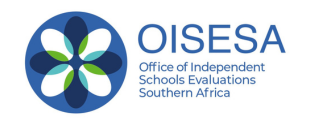Dear Parents and members of the ISCT community
It is very important that we keep the communication channels open in these very strange times. I apologise if I am over-communicating and transgressing the normal communication protocols as a result. I am aware that parents are seeking a sense of direction from the school, but I’m sure you also realise that offering complete clarity at this time is an impossible task. Our situation has been likened to playing darts in the dark! Nevertheless, I wanted to share some ideas with you and to give an indication of some of the things that we are considering in our planning. Further down the letter is a brief explanation of what is being offered in each Key Stage.
Holidays and term planning
If schools reopen at the beginning of May, which is the current target, then we will try to resume normal schooling as soon as possible after that time. It is likely that some parents will be reluctant to send their children back as soon as we reopen for health reasons, so it will take time to get back to full speed. However, if the resumption date is later than that, we are busy making provision for this by already planning an extension to the Home Learning programmes in the various phases. While the school is making every effort to continue to deliver the curriculum on a daily basis, we also need to consider the well-being of our teachers and students, some of whom are feeling the strain after just two weeks of remote teaching. The lockdown period, although not as effective as “normal” teaching,
has offered considerable value and there has been a great deal of good learning which has taken place during this time. At this stage we are still planning a holiday in June / July and before we make any changes to currently projected holidays, we will consider all options. We are not necessarily bound by the Education Department rulings in this regard, but we will be directed by what is in the best interests of everyone concerned.
Domestic issues
We are also aware that learning from home may work very well in many families, but that this is not always the case. There are all sorts of pressures on families that need to be considered at this time. These include employment and financial concerns, limited access to laptops and iPads, health of relatives overseas, access to bandwidth, all while parents continue to work from home!
Other worries at this time:
When will we have exams in high school and what form will these take? These will most likely be rescheduled for the third term. What form will reports for Term 2 take and will there be much to report on? Most likely a parent
/ teacher meeting in KS1 and KS2 and probably a much shortened written report in the high school.
Will all parents be able to pay fees so that we can continue to pay staff? We are not planning
fee holidays at this time, but we will continue to endeavour to offer parents fair return on school fees.
If parents are struggling with fee payments we will deal with these on an individual basis.
What is happening to Cambridge exams? To complicate issues further, Cambridge International
Exams have cancelled their mid-year sessions around the world. This means that our students who
would have written their exams in May and June will gain results based on the predicted grades they
have obtained thus far. This has placed an additional responsibility on those teachers already
teaching but needing to do this compilation in their spare time.
Home learning and Remote teaching
In the meantime, teachers are fully committed to present effective online lessons as described below.
Early Years and Key Stage 1:
The home learning program is being offered through the Seesaw platform. Teachers schedule new learning engagements each day for 08:00. These learning engagements take different forms. There may be a recap video from the teacher or it could be a Youtube link etc. with a learning engagement attached. There is no time limit for when these are submitted back to the teacher. The children receive daily feedback on their work.
The Struben House staff have carefully considered the curriculum and reorganised where appropriate. We have started to introduce new concepts but will only engage with content that is manageable from a home learning perspective. We are looking at scheduling new learning engagements from Monday to Thursday and then using Friday as a catch-up day as well as scheduling our art and STEAM responses.
Each of our learning engagements will reflect a WALT: We are learning to… This makes the tasks more meaningful for the children as well as the parents. We also aim to make our engagements as practical as possible incorporating movement and different response tools. We have tried to maintain some semblance of routine for our children so we engage in the tasks daily that they would normally engage in, for example, Clamber Club on a Tuesday etc. Our home learning program endeavors to cover all areas of the curriculum so as to develop the children holistically.
Key Stage 2:
We are adapting our curriculum and lessons to provide revision and consolidation of previous work,
as well as new skills, objectives and content that lend themselves to home learning. Our first priority is English and Maths, but teachers are also preparing lessons in all subject areas.
We have also put a few routines into place to contribute to a feeling of ‘human touch’ and a sense of community. On the first day of the week, teachers provide a timetable or overview of the week’s lessons to help families plan their week. Due dates are guidelines to provide structure (not stress).
Daily lessons are posted in Google Classroom each morning. While Google Classroom allows for work to be completed on a device, most materials can also be printed out, or work simply completed on a piece of paper/in a workbook. We encourage families to use the format that works best for them.
Some tasks are more practical and require a video or photo. A photo of the work is then uploaded and submitted via Google Classroom. We are also making use of the Flipgrid app for teachers and children to post short videos, either for ‘check-in’ wellbeing posts, or to respond to a lesson. Unlike in
Google Classroom, all members of the class can view each other’s videos to be motivated by – and learn from – each other, or just to enjoy seeing and hearing their classmates.
Teachers will provide pre-recorded videos or live online sessions to supplement instructions and digital resources when teaching new objectives or skills. The guideline is two live online sessions per week. Live online sessions will be short sessions: input, explanation or review. Whenever possible these sessions will be recorded and included as lesson resources for those children who weren’t able to join a live video session.
For MFL (Languages), teachers will schedule short fortnightly sessions with smaller groups of
students to allow for more two-way interaction and dialogue.
Based on parent feedback, class teachers also incorporate some ‘catch up’ time into the weekly timetable. If a child does not need that breather session to catch up on tasks, there are a number of activities to work on: Mathletics, times tables and spellings, own reading, and the optional KS2 Challenges.
Key Stage 3:
The announcement of the lock down required teachers to re-think and re-draft their teaching plans for
Term 2. The process has been challenging – requiring many hours of work behind the scenes.
Everyday has taught us new lessons as we plan and prepare for the next day. These lessons will
change the face of education irrevocably.
As you know lessons are posted on Google Classroom by subject teachers by 08h00. What do the
lessons look like?
State the Aim of the lesson.
Ideally, it should have a Starter activity: state key statements – where applicable.
Ensure that the key information is imparted clearly (differentiate as far as possible)
Allow for different learning styles eg. quizzes, videos, podcasts, graphs, PowerPoints,
worksheets, etc.
Assess – use quizzes, online revision, set questions, Kahoot, homework tasks, etc. – set clear
dates for submission/completion.
List the resources that must be used – i.e. textbooks and links.
Conclude each section with a clear summary
Over the past weeks lessons have evolved in many respects. Zoom has become the preferred method of communication for many teachers and students. The platform allows us to connect with each other and more importantly with our students. Some feedback received suggests that most of our students are coping fairly well under the circumstances but that they prefer to be back in their seats at Woodland Heights. The same sentiment applies to our teachers isolated in their homes with an ever-increasing workload, especially with regards to the online marking of student work. As difficult as this is for all of us parents, teachers and students, we will remain committed and work hard to enhance teaching and learning over the next few days and weeks. We thank parents for your support and patience during the lockdown. Please let us know if you have any suggestions or recommendations. You can email p.james@isct.co.za for matters pertaining to Year 7 – 9.
Key Stages 4 & 5:
Our home learning programme has been ticking over well, with a fairly high regular submission rate
from students across the senior keystage. Well done to all. Google Classroom is our key tool where
lessons are uploaded. Our lessons take the same format as Key Stage 3. For a quick and easy view
of due dates, parents and students can click on the menu button on the left hand page of their Google
Classroom and then select ‘TO DO’.
The Year 10s seem to be having the most challenges in turning up for appointments on Hangouts or
Zoom or in handing in work by deadline. So parents may like to help their children keep on top of
things by checking the ‘To Do’ list once in a while.
Years 10, 11 and 12 will continue to follow a reduced timetable, while Year 13 continues at full pace.
Year 10, 12 and 13 lessons are covering new content in line with our Cambridge Schemes of Work.
Given the special circumstances the IGCSE Year 11 students are in, the Year 11 teachers have narrowed their focus to helping students present some final academic evidence that will form part of their grade award which is in place of their May 2020 Cambridge examinations.
Final word
I am sure many of us are finding there are all sorts of new challenges which we have to deal with on a
daily basis. Being cooped up has never been easy for me personally, but I am grateful that I have a
home with a garden. Many don’t have this privilege. Please keep perspective in these difficult times
and please contact us if we can help in any way, especially with your children’s work and well-being.
Stay safe and well.
David Hunter





